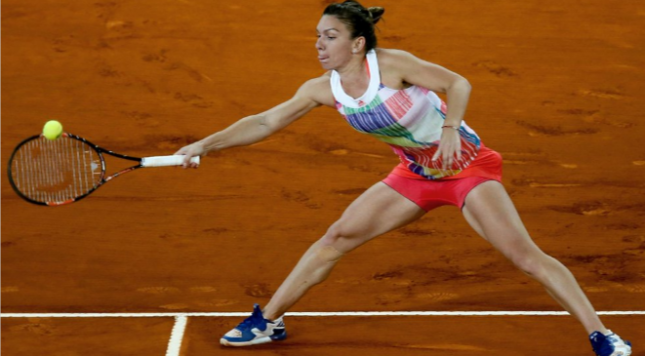If what happens in Vegas stays in Vegas, one must then ask: “Does anything that happens in Madrid not stay in Madrid?”
Simona Halep hopes the answer is yes after her championship in La Caja Magica this past week. Hope and reality don’t always find their way to the altar, but maybe in this case, Halep has awakened something inside herself which can carry into the French Open and beyond.
*
It was just two years ago that Halep raced to the final of Roland Garros. On the road to France, she reached the Madrid final before losing to Maria Sharapova, who also eclipsed her in Paris a few weeks later. To that extent, a strong Madrid campaign translated into a fruitful French for Halep. If you wanted to make the argument that her 2016 Madrid title augurs well for the Romanian heading into the City of Light, you’d build your argument on that specific assertion.
However, the landscapes of 2014 and 2016 are worlds apart. Whereas Halep ambushed the WTA Tour with her meteoric rise two years ago, this version is much more familiar to the rest of the tour, and it’s not nearly the force it used to be. Halep was in the process of building something in 2014; now, she’s rebuilding. Moreover, it’s patently clear that the Halep of 2016 faced a draw which gave her ample margin for error. Halep did flourish en route to the Madrid championship, completing a relatively uncomplicated journey with an efficient smackdown of Dominika Cibulkova in Saturday’s final. Nevertheless, the fact that Halep played her best tennis cannot exist independent of the caliber of her opponents. Those two details will remain connected…
… unless or until Halep makes a deep run in Paris.
This brings up a fundamental tension point of competition. This tension point involves a combination of results and process, and it highlights the complexity of assessing given outcomes in a vacuum.
*
Struggling athletes need to be able to visualize positive outcomes. This is a basic component of building productive thought patterns and reducing the influence of the negative internal voices we all deal with as human beings.
That building block is the starting point. Visualization then requires a repeated stream of experiences, which one can refer to as actualization. The act of doing something successfully enables the athlete (or any performer of any action, beyond the theater of athletics) to reinforce the process of visualization. The mind might have visualized various achievements in the realm of practice, before having secured the achievement itself. When dreaming of a future goal turns into the past-tense fulfillment of that goal, the athlete’s visualization shifts from hoped-for moments to actual moments — hence, the term actualization. Success becomes real and tangible, not just something pursued in a psychological silo.
This is the hope for Simona Halep coming out of Madrid: She might not have faced a Murderer’s Row of foes. She might have waltzed through nearly every set she played in this tournament, and she might have breezed to victories in the semifinals (Samantha Stosur) and the final (Cibulkova). Yet, the reality of having won her most important tournament since Indian Wells in 2015 could very well change her outlook.
Getting blown off the court in tentative matches against Mirjana Lucic-Baroni. Wobbling in a hesitant quarterfinal. Getting blitzed by Flavia Pennetta days after beating Victoria Azarenka at the U.S. Open. These and other major-tournament letdowns Halep has experienced over the past two years could become much rarer events as a result of this substantial forward step. The Romanian can only hope that what happened in Madrid will spill into Paris and the other cities which confer immortality upon the tennis players who lift trophies within their boundaries.
In many ways, the lesson of Madrid for Simona Halep is that while the opponent has a say in the outcome of a match or a tournament, your own confidence — if reset to a maximum level — can become an everyday trump card which renders opponents irrelevant.
Critics will focus on how Halep played a weak set of opponents this past week, and not without reason. Yet, if Simona Halep defeats her toughest opponent — the one within — we won’t soon write any more columns about the caliber of foe the Romanian encounters.
Why? She’ll have laid every such adversary at her feet.

